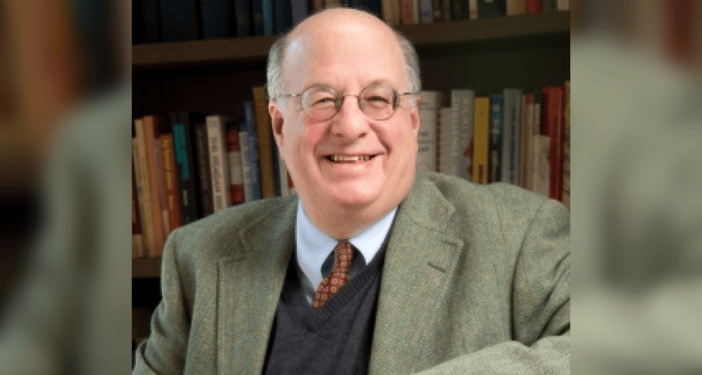In a lifetime of major achievements, US Federal Judge Mark Wolf is on a mission to top them all.
As a US federal prosecutor in the 1980s, Wolf’s Public Corruption Unit won more than 40 consecutive convictions, including for cronies of Boston Mayor Kevin White on charges of bribery, extortion, fraudulent pensions and perjury.
As a federal judge in the 1990s, Wolf oversaw Mafia trials including the successful racketeering prosecution of reputed New England mob boss Raymond Patriarca Jr. He led proceedings that revealed the FBI’s corrupt dealings with informants James “Whitey” Bulger and Stephen “The Rifleman” Flemmi.
In 2011 he sentenced former Massachusetts House Speaker Salvatore DiMasi to eight years in prison in connection with a bribery scandal.
Wolf is now taking his 40 years of accumulated experience and successes on a grand mission to fight corruption on the grandest scale. He is leading a campaign to establish an International Anti-Corruption Court and one of its potential homes is The Hague, rightly known as the “International City of Peace and Justice.”
The Anti-Corruption Court would be a tribunal of last resort, like The Hague’s International Criminal Court. It is needed for precisely the same reasons, Wolf writes: for the “prosecution and punishment of corrupt leaders of countries that are unwilling or unable to enforce their own laws against powerful offenders.”
Now a Senior Judge for the US District Court for Massachusetts, Wolf knows as well as anyone that it’s one thing to pass anti-corruption laws, but an entirely different challenge to enforce them.
“Grand corruption does not thrive because of a lack of laws,” he writes. “International treaties require the good-faith enforcement of criminal laws. However, those laws have been widely ignored. The international community has focused excessively on whether the statutes have been enacted and insufficiently on whether they are actually enforced.”
Why aren’t these well-meaning laws being enforced strongly enough, and how are crooked politicians and industrialists able to evade justice?
“Impunity exists because corrupt leaders control every element of the administration of justice: the police, the prosecutors and the courts,” Wolf writes. “Kleptocrats are able to prevent the honest, effective investigation and prosecution of their colleagues, their friends, their families, and themselves.”
There are countless examples of criminals dodging prosecutions. Along with this comes retaliation against officials who try to prosecute them. Wolf cites how Egyptian anti-corruption chief Hisham Geneina was prosecuted in 2018 for “disturbing the peace” and sentenced to five years in prison after revealing endemic graft costing $76 billion. Turkish prosecutors who pursued corruption cases against members of then-Prime Minister Recep Erdoğan’s cabinet were prosecuted in 2013 for allegedly attempting a coup.
The ongoing atrocities in Europe are adding to the urgency. “The terrible events in Ukraine bring into sharper focus the need for an International Anti-Corruption Court to punish and deter corrupt national leaders who are also among the worst abusers of human rights,” Wolf told WNN.
‘More Hopeful Than Ever’
Wolf has put together an impressive team to lead and support his effort. In 2016 he founded the Boston-based NGO Integrity Initiatives International with Richard Goldstone, a former South Africa Supreme Court justice and chief prosecutor of the International Criminal Tribunals for the Former Yugoslavia and Rwanda. They are joined by Robert Rotberg, a former president of the World Peace Foundation.
Colombia President Juan Manuel Santos, a Nobel Peace Prize recipient, became the first national leader to endorse the Anti-Corruption Court. Last June more than 100 world leaders, Nobel laureates, high court justices and prominent business people from more than 40 countries signed a declaration in support of the court. These include former presidents or prime ministers of Canada, Peru, Slovenia, Sweden, Timor-Leste and Tunisia.
“The adverse effects of corruption are, in many cases, comparable to the effects of crimes against humanity,” said International Bar Association President Sternford Moyo, one of the signatories.
Canadian Foreign Minister Mélanie Joly has made forming a coalition of countries to establish the Court one of her priorities, Wolf told WNN, and there are indications more countries soon will join the endeavor.
“The most common criticism of the proposed IACC is that it is a politically impossible ideal,” Wolf told WNN. “However, the rapidly growing momentum in the international campaign for the Court refutes such criticism. I am now more hopeful than ever that the urgently needed Court will be created.”
Like the International Criminal Court, the Anti-Corruption Court depends on a critical mass of member countries in order to make it effective. Importantly, this would include countries where kleptocrats invest, spend and launder their ill-gotten gains. Illicit funds recovered by the court would be repurposed and repatriated to their countries of origin. Portions of judgments in civil cases brought by whistleblowers would be used to fund the court’s operations.
